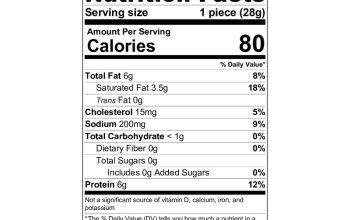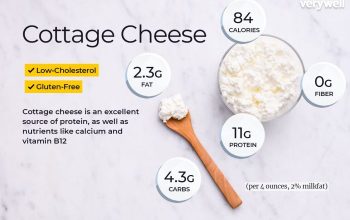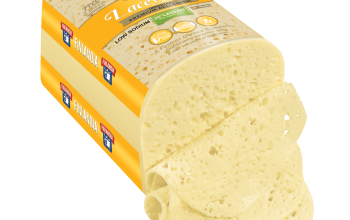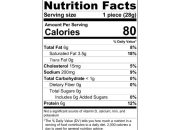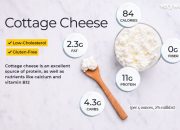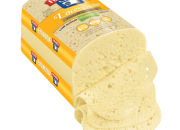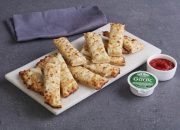Low-Fat Cottage Cheese in Different Diets: Low Fat Cottage Cheese Nutrition
Low fat cottage cheese nutrition – Low-fat cottage cheese is a versatile food that can easily be incorporated into a variety of dietary plans, offering a significant boost of protein and nutrients without excessive fat. Its adaptability makes it a valuable component for individuals aiming for weight loss, increased protein intake, or adherence to low-carbohydrate diets. Understanding how to best utilize low-fat cottage cheese within these frameworks is key to maximizing its health benefits.
The high protein content of low-fat cottage cheese makes it an ideal food for weight management. Protein promotes satiety, helping individuals feel fuller for longer and reducing overall calorie consumption. Furthermore, the relatively low calorie count, particularly in the low-fat variety, contributes to a calorie deficit crucial for weight loss. In high-protein diets, low-fat cottage cheese serves as a convenient and cost-effective source of this essential macronutrient, supporting muscle growth and repair.
For those following low-carbohydrate diets, its low carbohydrate content makes it a suitable addition, providing protein without significantly impacting blood sugar levels.
Low-Fat Cottage Cheese in Weight-Loss, High-Protein, and Low-Carb Diets
Low-fat cottage cheese is a highly effective tool in various dietary approaches. In weight-loss diets, it can replace higher-calorie snacks or be incorporated into meals to increase satiety and reduce overall caloric intake. For example, a simple snack could consist of half a cup of low-fat cottage cheese mixed with a small handful of berries. For high-protein diets, it is a convenient and affordable protein source.
A post-workout shake could include a scoop of protein powder blended with a half-cup of low-fat cottage cheese and some fruit for added flavor and nutrients. In low-carb diets, its low carbohydrate content allows it to be included in meals without significantly impacting blood sugar levels. A low-carb breakfast could consist of scrambled eggs with a quarter cup of low-fat cottage cheese and some chopped vegetables.
Suitability of Low-Fat Cottage Cheese for Individuals with Dietary Restrictions
The suitability of low-fat cottage cheese for individuals with specific dietary restrictions or health conditions varies. While generally well-tolerated, individuals with lactose intolerance may experience digestive discomfort. However, lactose-free cottage cheese options are readily available in many markets, providing a viable alternative. For individuals with diabetes, the relatively low carbohydrate content and moderate glycemic index make it a potentially suitable food choice, though portion control remains crucial to manage blood sugar levels.
Consult a healthcare professional or registered dietitian for personalized dietary advice tailored to specific health conditions.
Sample One-Week Meal Plan Incorporating Low-Fat Cottage Cheese, Low fat cottage cheese nutrition
A balanced meal plan incorporating low-fat cottage cheese can be designed to promote health and well-being. Portion sizes are suggestions and can be adjusted based on individual needs and caloric goals. Preparation methods are simple and can be adapted to personal preferences.
This sample meal plan demonstrates the versatility of low-fat cottage cheese. It provides a balance of protein, carbohydrates, and fats, while ensuring adequate intake of essential vitamins and minerals. Remember to adjust portion sizes based on individual needs and activity levels.
- Monday: Breakfast: 1/2 cup low-fat cottage cheese with 1/4 cup berries; Lunch: Salad with 1/4 cup low-fat cottage cheese and grilled chicken; Dinner: Baked salmon with steamed vegetables and 1/4 cup low-fat cottage cheese.
- Tuesday: Breakfast: Oatmeal with 1/4 cup low-fat cottage cheese and chopped nuts; Lunch: Leftover salmon and vegetables; Dinner: Chicken stir-fry with 1/4 cup low-fat cottage cheese.
- Wednesday: Breakfast: Scrambled eggs (2) with 1/4 cup low-fat cottage cheese and spinach; Lunch: Tuna salad sandwich on whole-wheat bread (with reduced-fat mayonnaise) and 1/4 cup low-fat cottage cheese; Dinner: Lentil soup with a side of whole-wheat bread.
- Thursday: Breakfast: Greek yogurt with 1/4 cup low-fat cottage cheese and fruit; Lunch: Leftover lentil soup; Dinner: Turkey meatballs with zucchini noodles and 1/4 cup low-fat cottage cheese.
- Friday: Breakfast: Smoothie with 1/2 cup low-fat cottage cheese, spinach, banana, and protein powder; Lunch: Salad with chickpeas, vegetables, and 1/4 cup low-fat cottage cheese; Dinner: Chicken breast with roasted sweet potatoes and broccoli.
- Saturday: Breakfast: Pancakes (whole wheat) with 1/4 cup low-fat cottage cheese and berries; Lunch: Leftover chicken and sweet potatoes; Dinner: Pizza with whole-wheat crust, vegetables, and low-fat cheese (limit cheese).
- Sunday: Breakfast: Waffles (whole wheat) with 1/4 cup low-fat cottage cheese and fruit; Lunch: Leftover pizza; Dinner: Roast chicken with roasted vegetables and 1/4 cup low-fat cottage cheese.
Question Bank
Can I eat low-fat cottage cheese if I’m lactose intolerant?
While many with lactose intolerance can tolerate small amounts, some may experience discomfort. Consider lactose-free options or smaller portions to gauge your tolerance.
How long can I store low-fat cottage cheese in the refrigerator?
Generally, low-fat cottage cheese remains fresh for 7-10 days after opening if stored properly in the refrigerator.
Is low-fat cottage cheese good for building muscle?
Absolutely! Its high protein content, rich in essential amino acids, supports muscle growth and repair. It’s an excellent post-workout snack or meal component.
Does low-fat cottage cheese affect blood sugar levels?
Due to its moderate protein and carbohydrate content, it has a relatively low glycemic index, making it suitable for individuals managing blood sugar levels. However, portion control is important.
Low-fat cottage cheese offers a nutritious, high-protein option for those seeking a healthy snack or meal component. In contrast, a vastly different nutritional profile is presented by the double quarter pounder with cheese nutrition , highlighting the significant caloric and fat differences between these two food choices. Returning to low-fat cottage cheese, its lower calorie count and higher protein content make it a suitable choice for weight management and muscle building.

